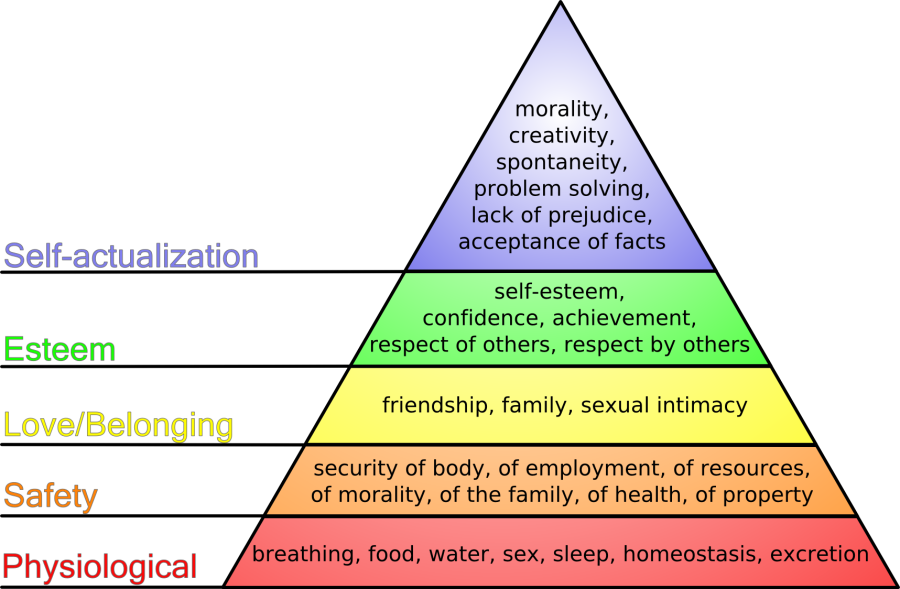According a 2004 study, 58 percent of Americans say they think increasingly about the meaning and purpose of life. Studies in Germany, Japan, and Sweden have shown similar results. Robert Inglehart, a political scientist at the University of Michigan believes this is evidence of a slow change in the priorities of the advanced world, calling it “a gradual shift from ‘Materialist’ values toward ‘Post-materialist’ concerns.”
What exactly is “Post-materialism?” It’s a value system that emphasizes self-expression and quality of life rather than material goods. As societies become richer, happiness comes less from possessing things and more from finding emotional significance, or Meaning (which I’m giving a capital M). A sociology tool called Maslow’s Hierarchy of Human Needs also documents this progression of values, showing that as people meet basic survival requirements, they move up the pyramid until they reach a Zen-like state of self-actualization (which is akin to Meaning, as defined above).

Maslow’s Hierarchy of Needs, created by J. Finkelstein, 2006
What does this have to do with marketing? In short, Meaning has become a central aspect of our work and our lives, including how we evaluate and make purchases. Consumers are focusing less on quantity and monetary value and more on how a product or service improves the quality of their lives or makes them feel. They seek new, more authentic, and higher quality things and experiences, and aren’t afraid to spend more to achieve the emotional satisfaction that comes with them.
How can brands and marketers adapt? First and foremost, ‘Meaningful’ marketing employs values or socially conscious appeals. For example, TOMS Shoes’ “Buy One, Give One” concept taps into a larger desire to be socially responsible. A consumer knows he or she can’t save the world, but that one pair is enough to get them feeling like they might. Similarly, in times of high employment or economic uncertainty, Coca-Cola has been known to emphasize happiness in its marketing. This appeal to a value – optimism – has been proven to drive sales.
Pursuing Meaning is no simple task, nor is marketing it. But by giving a consumer’s emotional and material needs equal importance in the planning process, marketers can explore ways to appeal to audiences that care less about things and more about greater contentment.
Posted By
Categories
Plus Points